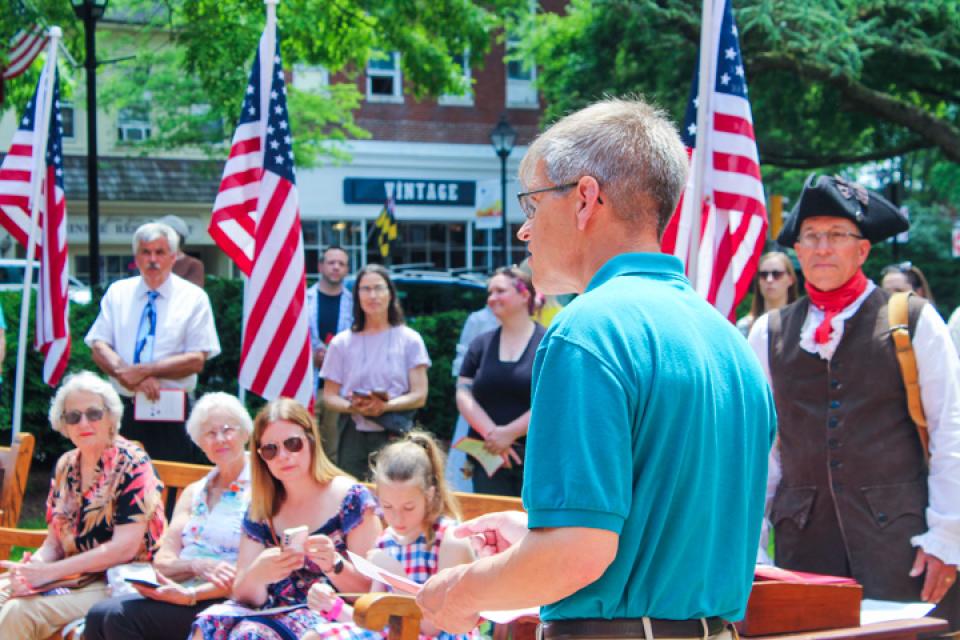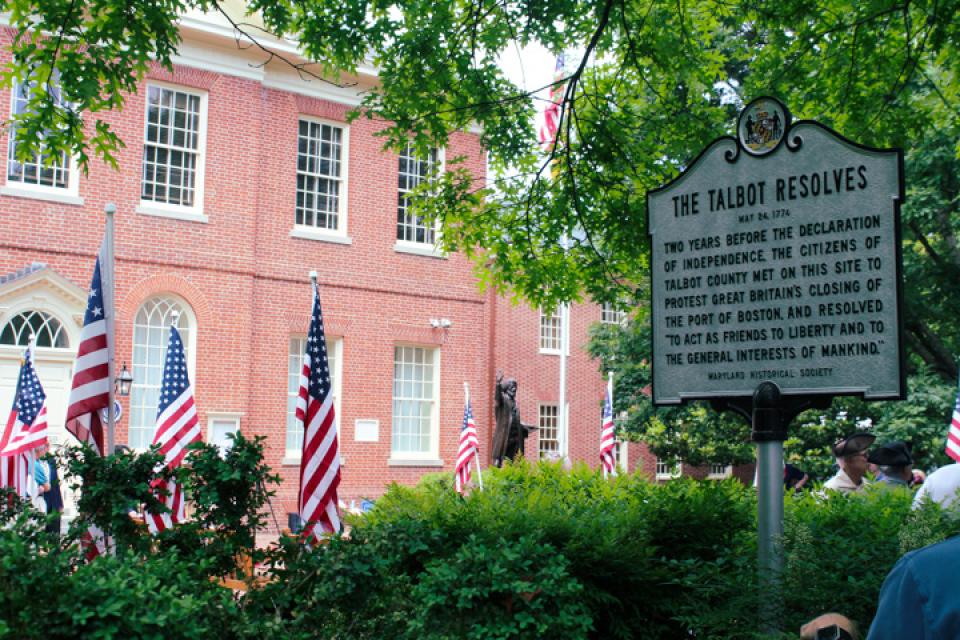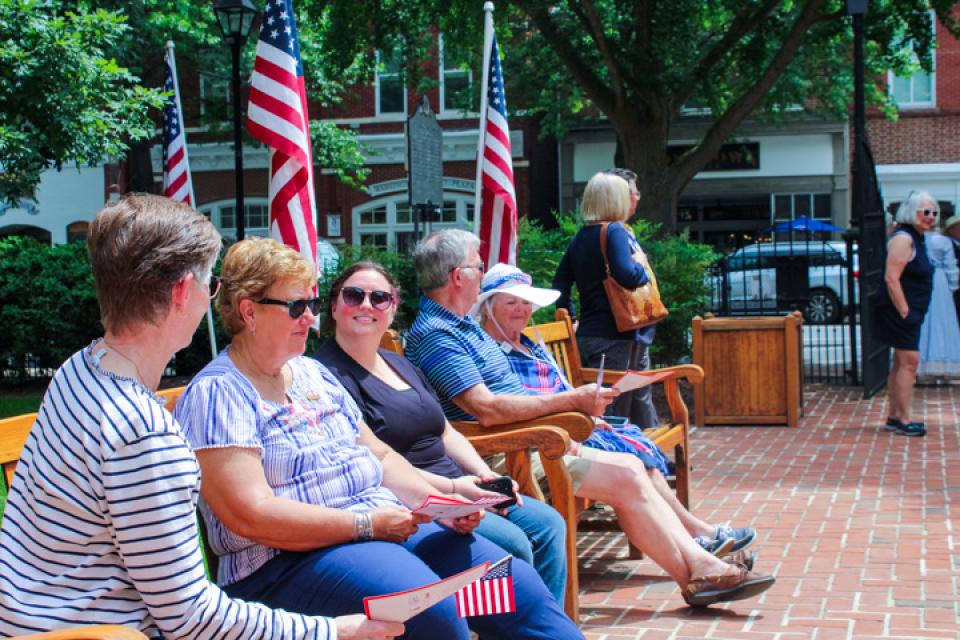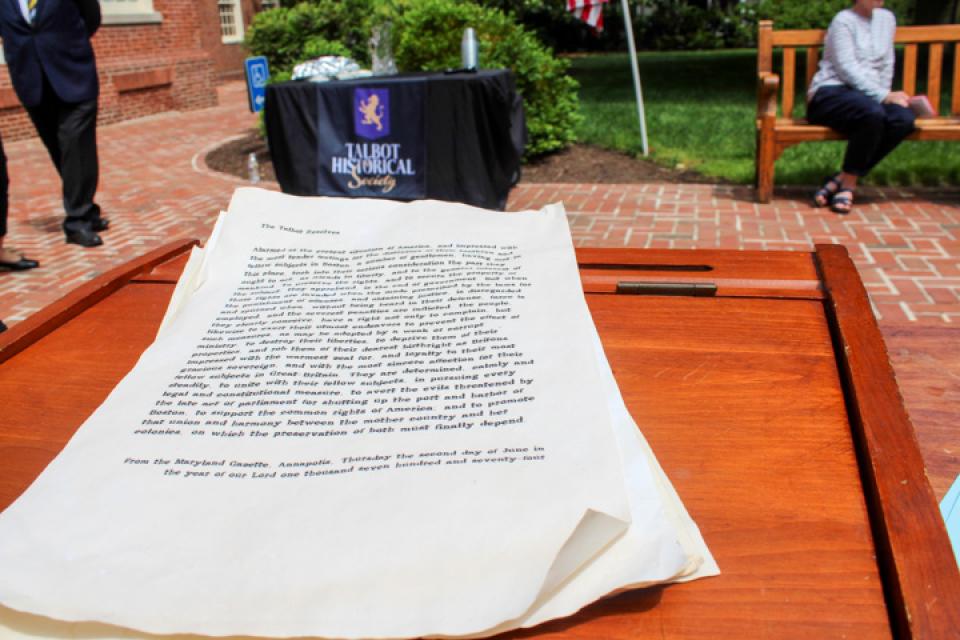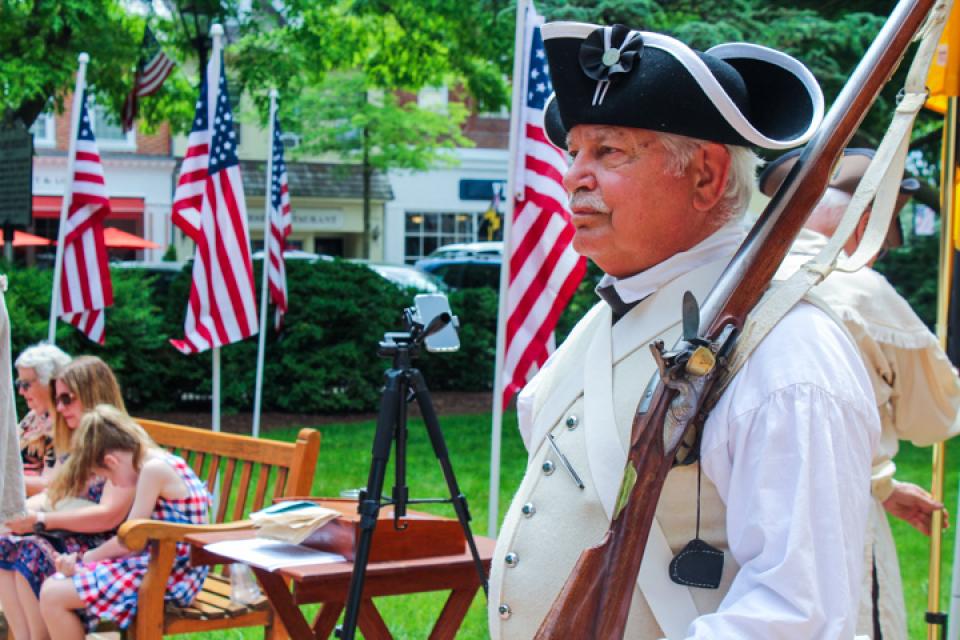Council Vice President Pete Lesher's Remarks from 250th Commemoration of Talbot Resolves
05/28/2024
Category: Economic Development and Tourism County Council
The following speech was presented by Talbot County Council Vice President, Pete Lesher during the 250th Anniversary of the Talbot Resolves Commemoration Event on May 24, 2024.
As the United States of America approaches 250 years of independence—on July 4, 2026—we pause today to recognize the most important precursor of Revolution here in Talbot County. Thank you for joining me today to mark this occasion – on the exact day 250 years later. I add my welcome to Mr. Silverstein’s words.
Today’s event is the first to mark Talbot County’s role in 250 years of American Independence as Talbot County joins the Maryland 250 and America 250 efforts. Stay posted for additional opportunities. Now taking us back to that momentous occasion…
The Maryland Gazette, published in Annapolis, reported that on May 24, 1774 at Talbot Court House—which a few years later would be renamed Easton, “a number of gentlemen … met at this place.”
Parliament, you will recall, had placed a hated tax on tea, after repealing earlier taxes on sugar, paper, and other goods. Talbot County residents, along with other American colonials, rejected taxes imposed by officials we didn’t elect—and who therefore couldn’t represent us. These were rights established more than a century earlier in the English Civil War—we cannot be taxed except by those we elected.
Bostonians rejected the taxed tea, dumping it into the harbor—an act remembered as the “Boston Tea Party.”
In retribution, Parliament closed the port of Boston to all commerce—a harsh economic injustice imposed without trial of the individual perpetrators—and Britain sent four regiments to enforce the port closure—because of this, we would never again tolerate the use of the army for domestic law enforcement—enshrined in our laws as posse comitatus and instilled in the culture of our armed forces to this day.
Samuel Adams of Boston wrote with a plea for support to Talbot County’s Matthew Tilghman, chair of the Committee of Correspondence in Annapolis, in a message received on May 23, 1774, and he immediately sent it to all county seats in Maryland. Samuel Adams appealed to his fellow colonists to act in solidarity with Boston.
Our local Talbot County response, the very next day, is remembered as the Talbot Resolves. They resolved that we “ought to act, as friends of liberty, and to the general interests of mankind” (today we would say act in the public interest…).
“To preserve the rights and to secure the property … is the end of government,” they declared. This is an echo of John Locke’s political philosophy, that we have natural rights to life, liberty, and property. Two years later, Jefferson would use the same concepts, enshrining life, liberty, and—he substituted—the pursuit of happiness in the Declaration. 92 years later, rights to life, liberty, and property—of which we may not be deprived without due process of law—would finally be protected in the 14th Amendment when it was ratified in 1868.
In the end, they resolved, that “They are determined, calmly and steadily, to unite with their fellow subjects, in pursing every legal and constitutional measure, to avert the evils threatened by the late act of parliament for shutting up the port and harbour of Boston, to support the common rights of America; and to promote that union and harmony between the mother country and her colonies, on which the preservation of both must finally depend.”
We were not yet in 1774 at the point of severing our relationship with the king and mother country, but the themes of no taxation without representation, of our right to elect those who will enact our laws, of the right to be free of military occupation—all still resonate today. We spoke up, here in Talbot County, early and clearly for American liberty—a call that was echoed across Maryland, and indeed, up and down the colonies. Although then we would have identified as Marylanders or a Britons, this action brought us one step closer to unity in the values we share and in our identity as Americans.
As we have come to understand: our rights are not secure unless we secure them—in the words of our Constitution and by those we elect who are sworn to uphold it and the military we raise that is sworn to defend it.
- Talbot County Council Vice President, Pete Lesher
To learn more about the Talbot Resolves, visit The Talbot Resolves Historical Marker (hmdb.org). To learn more about celebrating America's 250th Anniversary in Talbot County, MD, visit Talbot 250 on Facebook.
ReturnPage last modified Friday, May 3, 2024 11:38:20 AM

